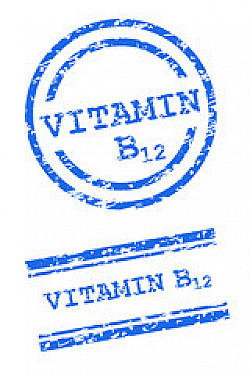Eating a sodium-rich diet is tied to increased eczema risks
News briefs
- Reviewed by Anthony L. Komaroff, MD, Editor in Chief, Harvard Health Letter; Editorial Advisory Board Member, Harvard Health Publishing
 Sodium-rich diets are associated with increased risks for many health problems, such as high blood pressure, kidney disease, heart attacks, stroke, and more. And a study published online June 5, 2024, by JAMA Dermatology suggests that eating a sodium-rich diet is also tied to increased risks of fueling eczema — a common type of atopic dermatitis characterized by dry, itchy skin and rashes. Researchers evaluated the health information of more than 215,000 people (ages 37 to 73) who'd each submitted a urine sample. When scientists analyzed sodium levels in the urine samples — a measure of how much sodium had been consumed in the past 24 hours—they found that the average was 3 grams. Each additional gram of excreted sodium over the average was associated with 11% increased odds of having eczema, 16% increased odds of having a flare up, and 11% increased odds of a severe case. While the study found an association, it doesn't prove that sodium intake causes eczema. However, many convincing studies have shown that high sodium intake is linked to other health problems, and it won't hurt to cut back if you're consuming more than the national recommendations of no more than 2,300 milligrams (mg) of sodium per day — about 2.3 grams.
Sodium-rich diets are associated with increased risks for many health problems, such as high blood pressure, kidney disease, heart attacks, stroke, and more. And a study published online June 5, 2024, by JAMA Dermatology suggests that eating a sodium-rich diet is also tied to increased risks of fueling eczema — a common type of atopic dermatitis characterized by dry, itchy skin and rashes. Researchers evaluated the health information of more than 215,000 people (ages 37 to 73) who'd each submitted a urine sample. When scientists analyzed sodium levels in the urine samples — a measure of how much sodium had been consumed in the past 24 hours—they found that the average was 3 grams. Each additional gram of excreted sodium over the average was associated with 11% increased odds of having eczema, 16% increased odds of having a flare up, and 11% increased odds of a severe case. While the study found an association, it doesn't prove that sodium intake causes eczema. However, many convincing studies have shown that high sodium intake is linked to other health problems, and it won't hurt to cut back if you're consuming more than the national recommendations of no more than 2,300 milligrams (mg) of sodium per day — about 2.3 grams.
Image: © CatLane/Getty Images
About the Author

Heidi Godman, Managing Director
About the Reviewer

Anthony L. Komaroff, MD, Editor in Chief, Harvard Health Letter; Editorial Advisory Board Member, Harvard Health Publishing
Disclaimer:
As a service to our readers, Harvard Health Publishing provides access to our library of archived content. Please note the date of last review or update on all articles.
No content on this site, regardless of date, should ever be used as a substitute for direct medical advice from your doctor or other qualified clinician.
















